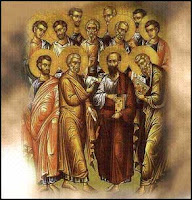The other day I linked to my most recent piece at Pajamas Media, which looked at the illogical responses we too-often see when a news report does not match someone’s world view.
Impressively, within hours – literally hours – of my piece being posted, the erudite Roger Kimball jumped off of it with a huge, and hugely entertaining and enlightening piece which of course is much smarter than anything I had to say, and much more elegantly said.
Nietzsche clung to honesty after abandoning the other virtues because it allowed him to fashion the most ruthless instrument of interrogation imaginable. Difficulty, not truth, became his criterion of value. Thus he embraced the horrifying idea of the Eternal Recurrence primarily because he considered it “the hardest possible thought”—whether it was also true didn’t really matter.
Nietzsche opposed honesty to truth. He looked to art as a “countermovement to nihilism” not because he thought that art could furnish us with the truth but because it accustomed us to living openly with untruth. Ultimately, Nietzsche’s ideal asks us to transform our life into a work of art. Accepting Schopenhauer’s inversion of the traditional image of man, Nietzsche no longer finds human life dignified in itself: if man is essentially an expression of irrational will, then in himself he is morally worthless.
[…]
It is an axiom of criticism that the extent of our disillusionment is a reliable index of our wisdom: the idea that somehow the less we believe the more enlightened we are. There is, however, an curious irony here. For there is an important sense in which philosophy must contribute to the reduction of human experience. At least, it must begin by contributing to it, and this for the same reason that philosophy cannot proceed without a large element of doubt. There is something essentially corrosive about the probing glance of philosophy: something essentially dis-illusioning. If our goal is a human understanding of the world, then the activity of philosophy must itself be part of what philosophy investigates and criticizes.
Yeah – there’s 6800 words of that, written with lightening speed and yet somehow fully coherent, cohesive and convincing. You’ll want to print it out and take your time with it, or at least I had to, but then, as you know, I’m not that smart.
Kimball also tells The NY Times Book Review folks what’s what.
UPDATE: I don’t know how I missed it but Wretchard at Belmont Club (Richard Fernandez) is now at Pajamas Media, too, and he’s also talking about asymmetrical information!.











